Extended Producer Responsibility (EPR) is a key initiative by the Ministry of Environment, Forest and
Climate Change, Government of India, implemented under the Plastic Waste Management (PWM) Rules, 2016.
EPR registration is mandatory for manufacturers, producers, importers, and brand owners.
The primary goal of EPR is to shift the responsibility for environmental protection throughout the life
cycle of plastic products from consumers to producers and manufacturers. It seeks to minimize
environmental impact from a product's design, production, packaging, and marketing stages, promoting
take-back programs, recycling efforts, and the responsible disposal of products and their packaging.
Under the PWM Rules, producers, importers, and brand owners are obligated to ensure that their plastic
packaging waste is processed through recycling, reuse, or end-of-life disposal methods like
co-processing, waste-to-energy conversion, plastic-to-oil processes, road construction, or industrial
composting.
To streamline EPR implementation, the Ministry, through its fourth amendment to the PWM Rules on
February 16, 2022, introduced the ‘Guidelines on Extended Producer Responsibility for Plastic Packaging’
in Schedule II of the Rules. According to these guidelines, Producers, Importers, and Brand Owners
(PIBOs) are now required to register for EPR through the Central Pollution Control Board (CPCB)'s online
portal.
What is EPR Authorization?
EPR Authorization is a requirement for producers, importers, and brand owners (PIBOs) in product
categories such as electronics and electrical equipment, as mandated by the Government of India. This
authorization is necessary for these entities to legally operate their businesses within India.
PIBOs are required to apply for EPR registration through the official portal of the Central Pollution
Control Board (CPCB). The following product categories fall under EPR compliance:
- Electrical and electronic equipment (EEE), governed by the E-Waste (Management) Rules, 2016.
- Plastic products, regulated by the Plastic Waste Management Rules, 2016.
- Batteries and accumulators, covered under the Batteries (Management and Handling) Rules, 2001.
- Packaging materials, regulated under the Plastic Waste Management Rules, 2016, along with other
relevant regulations.
What are the Rules/Acts/Regulations that Guide the EPR Business in India?
The legal framework governing the EPR business in India is guided by several key rules, acts, and
regulations, including:
 The Environment
(Protection) Act, 1986
The Environment
(Protection) Act, 1986 The E-Waste
(Management) Rules, 2016
The E-Waste
(Management) Rules, 2016
 The Plastic Waste
Management Rules, 2016
The Plastic Waste
Management Rules, 2016
 The Guidelines for
the Implementation of the E-Waste (Management) Rules, 2016
The Guidelines for
the Implementation of the E-Waste (Management) Rules, 2016
 The Guidelines on
Extended Producer Responsibility for Plastic Packaging
The Guidelines on
Extended Producer Responsibility for Plastic Packaging
How Many Types of EPR Registrations are Available in India?
As per the Central Pollution Control Board (CPCB), EPR has been further classified in accordance with the
waste type into the following categories:
What are the Benefits of EPR Registration Online in India?
EPR registration provides numerous benefits for manufacturers, consumers, importers, and the environment.
Some of the key advantages of online EPR registration in India include:
- Efficient Waste Management: EPR registration facilitates effective waste management
by implementing various processes and compliance measures.
- Cost Efficiency: Optimized waste management practices lead to reduced expenses and
improved cost management within organizations.
- Enhanced Goodwill & Brand Image: EPR authorization boosts an organization’s
reputation, as consumers increasingly prefer to engage with environmentally conscious and
socially responsible companies.
- Environmental Protection: Complying with EPR regulations helps reduce pollution and
contributes to a healthier environment.
- Taxpayer Benefits: EPR registration offers tax relief to taxpayers by shifting the
cost of waste management from individuals to the responsible organizations.
Are the EPR Guidelines for Importers the same as those for local manufacturers?
For obtaining BIS FMCS Certification for Electric and Non-Electric Toys, the process involves several
steps. Initially, the applicant must complete and submit the application form along with the necessary
documents. The required fee must be paid, and upon successful payment, BIS conducts a factory
inspection. During this inspection, BIS-authorized personnel collect toy samples for independent testing
at a BIS-recognized laboratory.
 If the products are
sold in India as "Imported."
If the products are
sold in India as "Imported."
 If the imported
products are sold under the importer’s brand name.
If the imported
products are sold under the importer’s brand name.
 If the imported
products are marketed under the brand name of the original owner, who is not based in India,
whether sold by the importer or a third-party seller.
If the imported
products are marketed under the brand name of the original owner, who is not based in India,
whether sold by the importer or a third-party seller.
Importers must secure EPR authorization from the Central Pollution Control Board (CPCB) if their
operations span more than two states or Union Territories (UTs). For operations limited to one or two
states or UTs, EPR certification must be obtained from the respective State Pollution Control Boards
(SPCBs) or Pollution Control Committees (PCCs) through their online portals.
What is the Importance of EPR Registration Certificate for Importers?
EPR registration certificate is important for importers for the following reasons:
 It plays a key role
in promoting sustainable waste management practices.
It plays a key role
in promoting sustainable waste management practices.
 It encourages
businesses to take responsibility for managing their products' waste throughout the entire
lifecycle.
It encourages
businesses to take responsibility for managing their products' waste throughout the entire
lifecycle.
 It serves as proof of
the company's dedication to environmental sustainability.
It serves as proof of
the company's dedication to environmental sustainability.
 It helps cultivate a
positive, eco-conscious brand image for the business.
It helps cultivate a
positive, eco-conscious brand image for the business.
Online EPR Registration – Importers Guide
| Details |
Information |
| Time Taken to Obtain EPR Certificate (Importer of Plastic Goods) |
25 – 30 Working Days |
| EPR Registration (Govt) Fees (Importer) |
Plastic Waste Generation (TPA):
1. Less than 1000 TPA: INR 10,000
2. Between 1000-10,000 TPA: INR 20,000
3. More than 10,000 TPA: INR 50,000
|
| Renewal & Validity |
Lifetime
|
| Renewal Fees for Online EPR Certification |
Same as Certification Fees |
| Fees (Govt) for Filing EPR Annual Returns |
25% of EPR Application Fees |
| Mode of Application for EPR Authorization |
Online Application |
Documents Required for EPR Registration in India
In order to obtain an EPR registration certificate, some relevant documents need to be shared. Here is a
checklist of documents required for EPR registration in India:
- Application form, duly signed
- Detailed EPR Plan to achieve targets set by CPCB or SPCB
- Legal documents authorizing the manufacture, import, sale, or distribution of EEE or plastic
packaging
- Agreement or MoU with entities for the collection and management of e-waste or plastic waste
produced at the facility
- Agreement or MoU for authorized transportation of e-waste or plastic waste as per Hazardous &
Other Wastes (Management & Transboundary Movement) Rules, 2016
- Agreement or MoU with authorized labs for testing e-waste or plastic waste as per RoHS or other
compliances prescribed by CPCB or SPCB
- Agreement or MoU with CPCB, SPCB, or UT Administration for the implementation of E-Waste
(Management) Rules, 2016 or the Plastic Waste Management Rules, 2016
- Business address with mandatory documents
- Contact details
- Certificate of Incorporation
- Import Export (IE) Code Verification
- Awareness Initiative details
- Budget allocated for Extended Producer Responsibility
- Estimates for E-Waste Management
- Recycler Information
- BIS License copy (if applicable)
- Authorized Person’s details and documents
- Product details
- PAN Card copy
- Certificates issued by Municipality/Local Authorities
- Any other documents deemed important by the CPCB, SPCB, or other regulatory authorities
What is the EPR Registration Process in India?
Understanding the complexities of the EPR registration process is important. The process to apply for EPR
authorization in India is as follows:
- All manufacturers seeking EPR Authorization in India should file through Form-1 of the E-Waste
(Management) Rules, 2016.
- The form must be completed in full; incomplete forms will not be accepted.
- The required documents must be attached along with the form.
- The completed form should be submitted to the Member Secretary (CPCB).
- All legal requirements regarding E-Waste as outlined in Section 2.1.1 to 2.1.7 must be
fulfilled.
- The applicant must wait for the review of the application by the CPCB.
- Additional information must be provided to CPCB upon request.
- Document verification and issuance of the certificate by CPCB will follow.
Cancellation/Validity/Renewal Guidelines for EPR Registration
Here is an overview of the guidelines for the cancellation, validity, and renewal of EPR registration:
- Cancellation
- Violating the terms and conditions of registration.
- Providing false or misleading information.
- Submitting fraudulent documents, concealing facts, or deliberately omitting information.
- Failing to meet EPR targets.
- Non-compliance with EPR regulations as outlined in the E-Waste (Management) Rules, 2016
or the
Plastic Waste Management Rules, 2016.
- After addressing the applicant's pleas and recording any violations that have occurred.
If
violations are confirmed, the CPCB or SPCBs may impose penalties or take other legal
actions deemed
appropriate.
- Validity
- For plastic packaging: Lifetime
- For electrical and electronic equipment (EEE): 5 years from the date of issuance, or as
specified.
The validity is subject to several conditions, including satisfactory performance,
adherence to the
EPR plan, effective collection methods, proper documentation, and verification
processes.
- Renewal
- Applying for renewal up to three months before the current registration expires.
- Submitting a renewal application along with the required documents.
- Paying the renewal or processing fees.
- Renewal is contingent upon continued compliance with EPR guidelines as per the E-Waste
(Management)
Rules, 2016 or the Plastic Waste Management Rules, 2016.
- Renewal is also subject to a review of EPR compliance by the authorized body.
- Renewal validity is Lifetime for plastic packaging.
How many Categories of Plastic are characterised by CPCB?
As per the guidelines of CPCB, plastics are categorized as:
- Recyclable Plastics (Thermoplastics) – This category includes plastics such as PET, HDPE, LDPE,
PP, PVS, and PS, amongst others.
- Non-Recyclable Plastics (Thermoset & Others) – This category of plastics includes Multilayer and
Laminated Plastics, PUF, Bakelite, Polycarbonate, Melamine, Nylon etc.
Non-Recyclable Plastics (Thermoset & Others) – This category of plastics includes Multilayer and
Laminated Plastics, PUF, Bakelite, Polycarbonate, Melamine, Nylon etc.
| Symbol |
Short Name |
Scientific Name |
Used in |
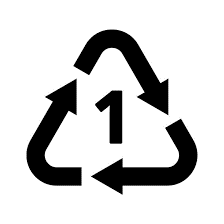 |
PET |
Polyethylene Terephthalate |
Water bottles, PET bottles etc. |
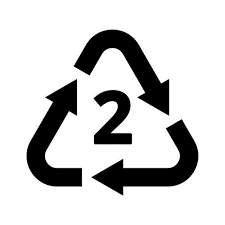 |
HDPE |
High Density Polyethylene |
Milk, Detergent bags, Carry bags, Containers etc. |
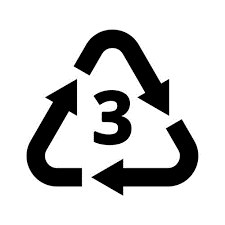 |
PVC |
Polyvinyl Chloride |
Cables, Pipes, Floorings etc. |
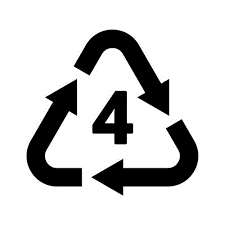 |
LDPE |
Low Density Polyethylene |
Carry bags, Films etc. |
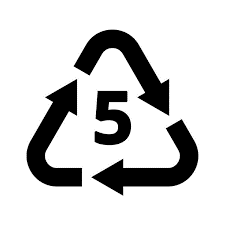 |
PP |
Polypropylene |
Medicine bottles, Cereal liners, Packaging Films etc. |
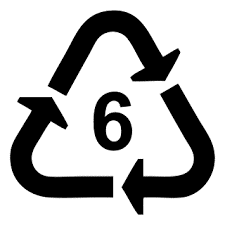 |
PS |
Polystyrene |
Foam Packaging, Tea cups, Ice Cream cups etc. |
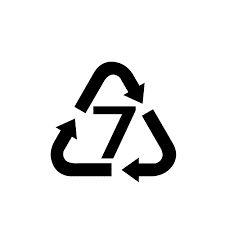 |
O |
Others |
Thermoset Plastic, Multilayer, Laminated Plastics, PUF, Bakelite, Polycarbonate, Melamine,
Nylon etc. |
Note: Applicants who intend to use
plastic waste in road construction must furnish a self-declaration certificate in accordance with a
format set by the Central Pollution Control Board (CPCB).
Mandatory Compliance for EPR Registration in India
Mandatory Compliance for EPR Registration in India
To obtain and maintain EPR registration in India, businesses must adhere to the
- Abide by all terms and conditions outlined in the E-Waste (Management) Rules, 2016, Plastic
Waste Management Rules, 2016, as well as CPCB and SPCB guidelines.
- Ensure full compliance with all laws and regulations pertaining to e-waste or plastic waste
management.
- Continuously monitor and follow the guidelines set for e-waste or plastic waste management.
- Conduct annual verification or validation of performance and compliance concerning e-waste or
plastic waste.
- Display the EPR registration certificate along with validation reports, performance statements,
and compliance documents highlighting the management of e-waste or plastic waste.
- Provide full cooperation during any inspection, verification, audit, investigation, or other
legal processes initiated by the CPCB, SPCBs, or other regulatory bodies, including courts and
tribunals.
How long does it take to obtain EPR Registration?
After submitting and validating the duly filled form, it takes up to 30 working days to obtain EPR
registration.
Why SeaRoot
Choosing SeaRoot for EPR registration and compliance offers several key advantages:
- Expertise in Compliance: SeaRoot specializes in helping businesses navigate the
complex landscape of EPR regulations, ensuring that all necessary steps are followed for
successful registration and ongoing compliance.
- End-to-End Support: SeaRoot provides comprehensive services from documentation,
application submission, to managing interactions with CPCB, SPCB, or other regulatory bodies,
making the process seamless for businesses.
- Customized Solutions: Recognizing that every business has unique needs, SeaRoot
tailors its approach to match specific EPR compliance requirements for different sectors like
plastic, electronics, and more.
- Sustainability-Focused: SeaRoot is dedicated to promoting environmentally
responsible practices, helping businesses align their operations with sustainability goals,
which enhances their reputation and brand value.
- Timely Execution: With SeaRoot, businesses benefit from quick and efficient
handling of EPR registrations, ensuring minimal delays and smooth operations.
By partnering with SeaRoot, businesses can rest assured that their EPR compliance needs are in expert
hands, allowing them to focus on growth while staying aligned with environmental regulations.
Frequently Asked Questions
1.What is EPR Registration?

EPR (Extended Producer Responsibility) registration is a regulatory requirement that mandates
producers, importers, and brand owners to take responsibility for the environmental impact of
their products, especially at the post-consumer stage. This includes ensuring proper waste
management, recycling, and disposal.
2.Who is required to obtain EPR Registration?

EPR registration is mandatory for producers, importers, and brand owners (PIBOs) involved in the
production, import, or sale of goods that generate plastic waste or e-waste. It applies to
sectors such as electronics, plastic packaging, and batteries.
3.Why is EPR Registration important?

EPR registration helps businesses comply with environmental regulations, contribute to
sustainable waste management practices, and reduce their carbon footprint. It also enhances the
business's reputation by showing its commitment to environmental responsibility.
4.How long does it take to obtain EPR Registration?

The time frame for obtaining EPR registration varies. For example, it typically takes around
25-30 working days to obtain an EPR certificate for importers of plastic goods.
5.How can I renew my EPR Registration?

To renew your EPR registration, you should apply at least three months before the expiration of
your current certificate. Renewal requires the submission of an application, supporting
documents, and payment of renewal fees. The renewal validity will be the same as the original
certificate (1 year for plastic, 5 years for EEE).
6.Can importers apply for EPR Registration?

Yes, importers must obtain EPR registration if they meet specific criteria, such as selling
products in India under their own or another brand's name. The registration process is similar
to that for local manufacturers.
















